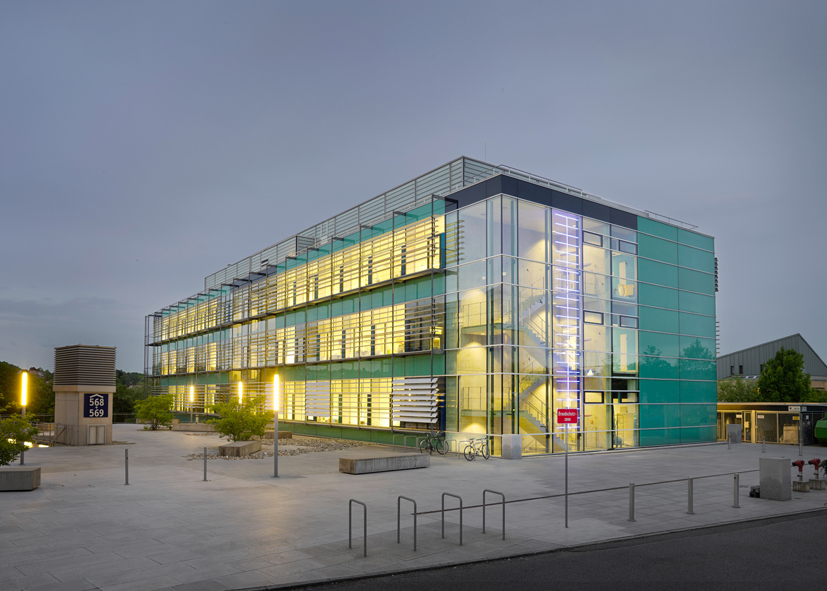The HIH is engaged in one of the currently most fascinating research fields: the decoding of the human brain. The Hertie Institute for Clinical brain research (HIH) in Tübingen is one of Germany's largest and most modern research centers for neurological diseases. The HIH is a model research center, bringing together public resources and private foundation funding: it was founded in 2001 by the non-profit Hertie Foundation, the state of Baden-Wuerttemberg, the Eberhard Karls University Tübingen, its medical faculty, and the University clinic Tübingen and opened in 2004.
Laying the Foundations for the Medicine of Tomorrow
The central task of the institute is to contribute to a better understanding of brain function disorders and develop new treatment strategies. This is to be achieved by the cooperation of patient care by the neurological clinic and the scientific work of the neuro-scientists at the HIH.
After London and Paris, the HIH is considered one of top three leading research institutions in the area of neurology in Europe today. In 2007, the HIH was added to the Federal Excellence Initiative with an application to install a "Center for Integrative Neuroscience (CIN)". The HIH is also a partner location to the German Center for Neurodegenerative Diseases (DZNE), the Federal Dementia Initiative, and center of the research network for the genetics of Parkinson's disease.
The Research Focus
The HIH is engaged in one the currently most fascinating research fields: the decoding of the human brain. The focus lies on the question how certain diseases impair the function of this organ. Focal points of the research include
- neurodegenerative diseases, such as Alzheimer's and Parkinson's disease,
neurovascular diseases, such as strokes,
epilepsies and related disorders, such as migraines
Neuro-oncology - tumor diseases affecting the nervous system.
Neural basis of cognition and behavior
The center currently consists of five departments: the neurology department with a focus on neurovascular diseases and neuro-oncology (Dr. Ulf Ziemann), the neurology department with focus on neurodegenerative diseases (Dr. Thomas Gasser), the neurology department with focus on epileptology (Dr. Holger Lerche), the cognitive neurology department (Dr. Hans-Peter Thier), and the department of cell biology of neurological diseases (Dr. Mathias Jucker).
Dates and Events
of the Hertie Institute for Clinical Brain Research
Close Mesh of Research and Patient Care
Together with the Neurological Clinic of the University Clinic Tübingen, the HIH forms the "Center for Neurology". Three departments of the HIH contribute to the care of patients, the two other departments are involved in the care with special outpatient clinics. This close networking is supposed to increase the transfer efficiency of research results to the implementation in diagnosis and therapy of patients.
The cooperation with the Neurological Clinic ensures that the HIH is integrated within the clinic, has access to patients, and a close connection of research and patient care. With the Center for Neurology, an institution was created that practices clinical brain research, medical treatment, and training at an international top level. The scientific council has praised this practiced integration of basic research and clinical practice and recognized the Center for Neurology as a model for university medicine in Germany.
Model for Modern Institute Structures
The HIH sees itself as a reform model of a university institute. The heads of the five departments form the Board of the HIH in equal parts. The Chairman of this Board represents the HIH to the outside world and is responsible for coordinating patient care, but otherwise only decides in case of a tied vote in the Board. This suspends the classic hierarchical structure and replaces it with a "department model", a cooperative and communal management, which is the first time that something like this has been realized as consistently in Germany in a clinical center.


